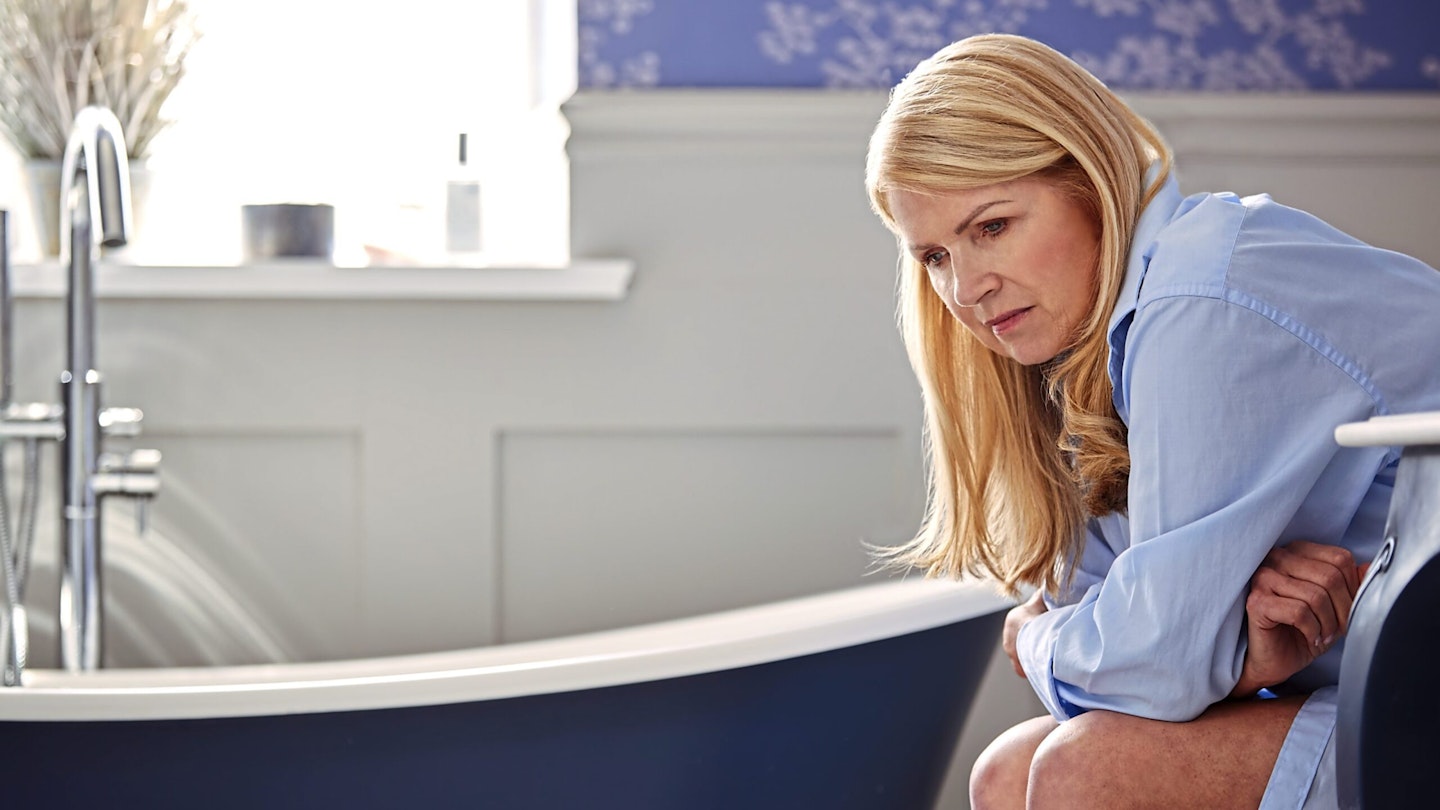Incontinence and recurrent UTIs related to menopause can wreak havoc on our health and self-confidence, but there’s help available…
There are as many as 80 recognised symptoms of menopause. While brain fog and hot flushes might get us talking, there are several symptoms that women will suffer in silence, including urinary incontinence and recurrent UTIs — which come under the umbrella of genitourinary syndrome of menopause (GSM).
Dr Philippa Kaye, menopause expert and TV doctor, says: ‘There is still a lot of shame, stigma and silence around the menopause and women’s health. That silence harms us. It’s important that we talk about it.’
Here, we discuss these symptoms and reveal what can be done to help…
Little leaks
Dr Philippa explains: ‘About one-in-two women in the UK will experience bladder leaks around the time of menopause. There are lots of reasons for this but, essentially, the pelvic floor is a hammock of muscles which hold up the organs in your pelvis — your bladder, your bowel, your uterus — and that is affected by hormonal changes. It can become weaker, which means you might get stress incontinence, where you leak when you jump, run, cough, laugh or sneeze.
‘And there are other forms of incontinence, including overactive bladder, which is more common around the time of the menopause. Sometimes, you can get a mixed picture of the two.’
Whatever the reason for the leaks, it seems women are reluctant to seek help for them.
‘Always Discreet did a survey and the results showed about 50 per cent of people who experience bladder leaks don't want to talk about it, and only about one-in-three will go to their GP,’ adds Dr Philippa. ‘People often say, “I thought it was a normal part of getting older”. There’s an important distinction between something being common and something being normal and accepted. It’s really important that you see your GP because there are lots of things we can do.’
According to Dr Philippa, the first thing to try is pelvic floor exercises. She says: ‘Pelvic floor exercises are hugely important. You need to do small, sharp holds, for a count of two or three, then some long holds. Like any muscle, it will take time to build up that strength. It’s important that you “squeeze the day”, every day.’
If doing these exercises regularly doesn’t work for you, Dr Philippa advises going back to your GP who could offer other treatments. ‘You might be helped by some vaginal oestrogen for urinary symptoms, you might be referred to a women’s health physio for something called biofeedback, which can be useful if you have overactive bladder, and there are other medications. If you have an element of prolapse that's contributing to it, then sometimes people need surgery.’
Recurrent UTIs
Many women experience recurrent urinary tract infections alongside their incontinence.
Dr Philippa explains: ‘The tissues have changed, the pH of the vagina has changed and that means UTIs are more likely. There is an impact to those urinary tract infections, apart from the fact that they’re uncomfortable and horrible. You’re more likely to become delirious, you’re more likely to fall — and when you fall when you’re older, you’re more likely to break something — so there is a whole-body effect.’
According to Dr Philippa, the recommended treatment is vaginal oestrogen, which is available as pessaries and works locally in the area.
‘Vaginal oestrogen is often the treatment for genitourinary syndrome of the menopause and most doctors will say that more and more women should be on vaginal oestrogen to help prevent things like recurrent UTIs,’ she says. ‘Some people worry about taking whole-body HRT, or maybe they can’t use if they’ve previously had breast cancer, for example, but they can generally use vaginal oestrogen and it can be life changing.’
If your symptoms are affecting your daily life or causing you concern, do see your GP.
Dr Philippa adds: ‘There are lots of things we can do. I don’t want anybody to just put up with it.’
